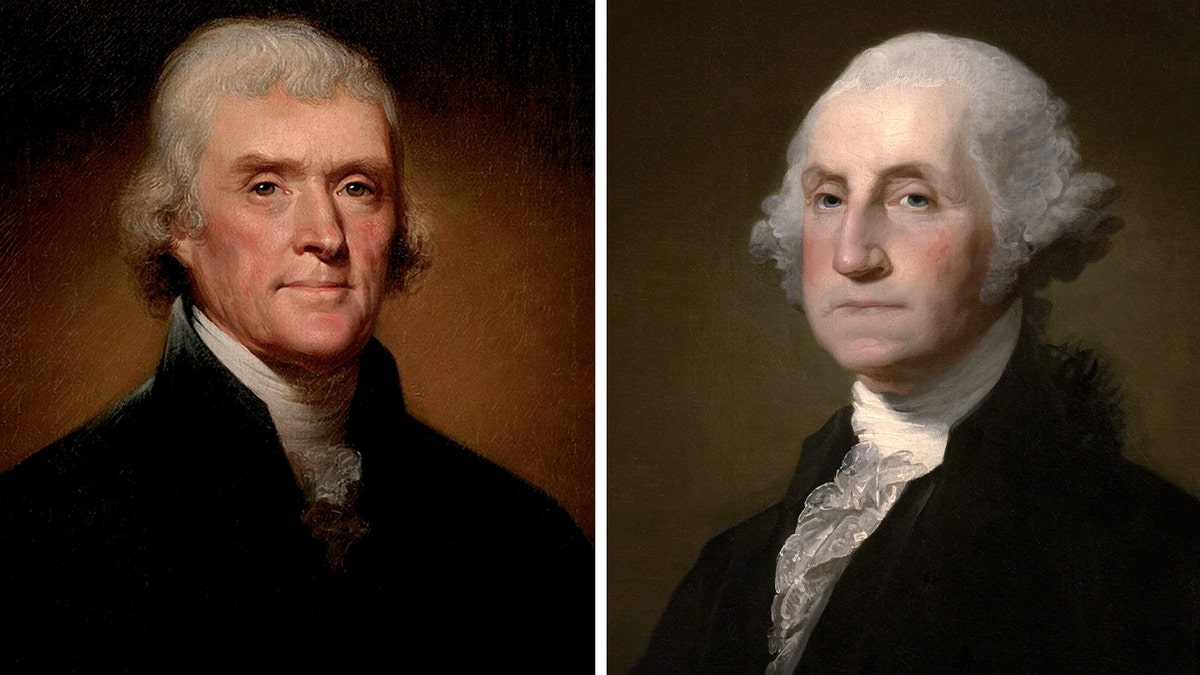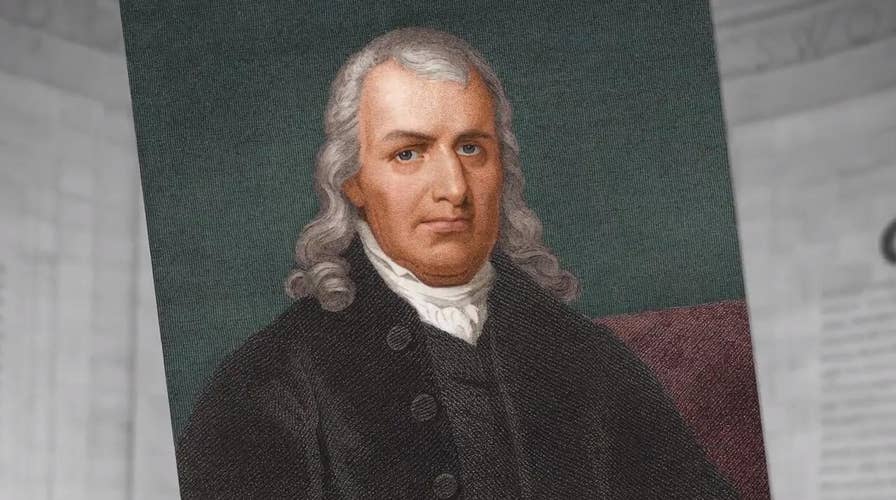In the series "Fox Nation 101: Impeachment," George Washington Law School Professor Paul Rosenzweig explores the history of the impeachment clause, as Democrats move swiftly towards a vote on President Trump's impeachment.
Rosenzweig described how calls for impeachment date back to the country's earliest days. "It surprised me when I first started studying this 10 years ago to learn that the very first person who was ever thought of as a possible candidate for impeachment as a president was George Washington," Rosenzweig said in the first episode of the new five-part series, which is available now on Fox Nation.
"I mean, think of it, George Washington -- the man known for his honesty, his probity, his love of country, the father of our country -- and yet Thomas Jefferson seriously thought that he should be impeached and removed from office," Rosenzweig added.
In 1794, Washington had concluded the Jay Treaty, a final peace treaty with Great Britain to bring an end to the Revolution. The treaty, negotiated by John Jay, committed America to neutrality in the conflict between Great Britain and France.
WHY TRUMP IMPEACHMENT EFFORT IS NOTHING LIKE NIXON SAGA
Jefferson, "essentially a Francophile," according to Rosenzweig, viewed Washington's commitment of neutrality between the two powers as a mistake, calling the treaty "treasonous," Rosenzweig explained.
"It's really interesting to learn that at the very founding of our nation, one of the most influential Founders thought that impeachment was as much about grave policy differences as it would be about the personal conduct of the president," he added.
Jefferson's effort to oust Washington fizzled and articles of impeachment were never introduced, but Rosenzweig said that the episode shows that debate over the intended use of the impeachment clause is as old as the country. It is also an argument that has surfaced throughout nearly every administration. While some believe that a policy disagreement could constitute grounds for impeachment, others limit the clause to include only professional misconduct.

Rosenzweig discussed the case of Supreme Court Associate Justice Samuel Chase, who was appointed by John Adams but later impeached after he criticized Thomas Jefferson's policies during his time at the Supreme Court. However, Chase was eventually acquitted by the Senate, which found Jefferson's call for impeachment to be driven by his disapproval of Chase's political views, Rosenzweig explained.
"The Senate took a very different view and acquitted Chase by what turned out to be a very large margin, saying that impeachment was not for mere policy disagreements...but rather that it should be reserved for actual acts of professional misconduct," he said.
"And so at that point, they reach the determination that impeachment in this context would not be about bad policy disagreements, but rather would be about, if necessary, judges who had done something wrong, like sexually assaulting somebody," Rosenzweig continued.
"And so we see from this early history that impeachment was both controversial. Some people didn't think it should be in the Constitution at all. And we see that there was early disagreement about what exactly was something that was an offense for which one could be impeached and removed from office," he concluded.
For more from Rosenzweig as he explores the law, policy, and history of impeachment, join Fox Nation and watch Fox Nation 101: Impeachment today.
Fox Nation programs are viewable on-demand and from your mobile device app, but only available only for Fox Nation subscribers. Go to Fox Nation to start a free trial and watch the extensive library from Tomi Lahren, Pete Hegseth, Abby Hornacek, Laura Ingraham, Greg Gutfeld, Judge Andrew Napolitano and many more of your favorite Fox News personalities.





















